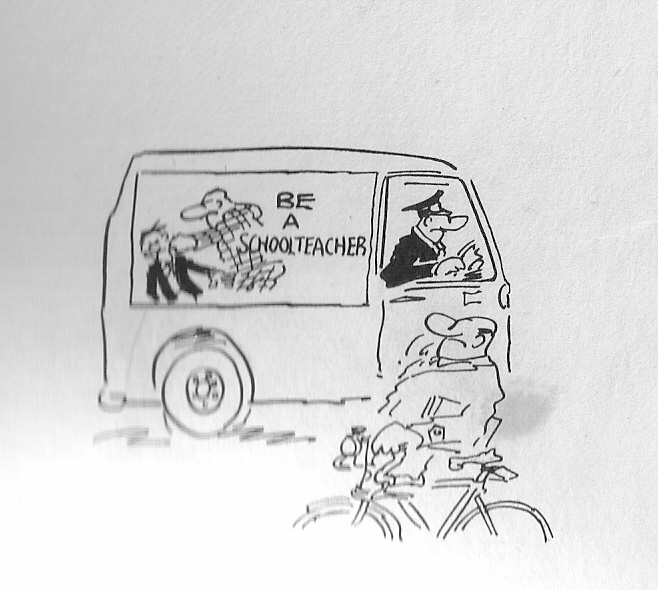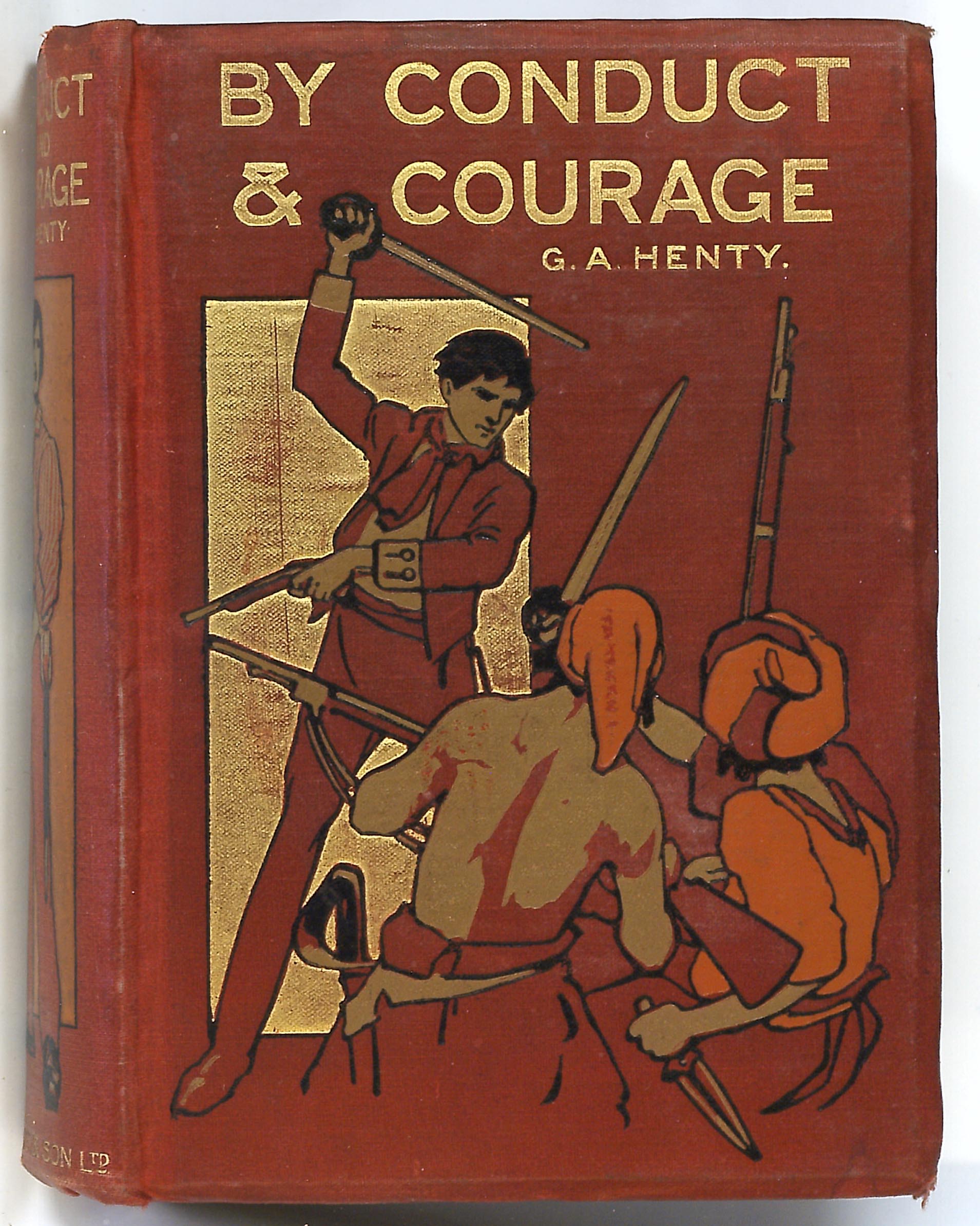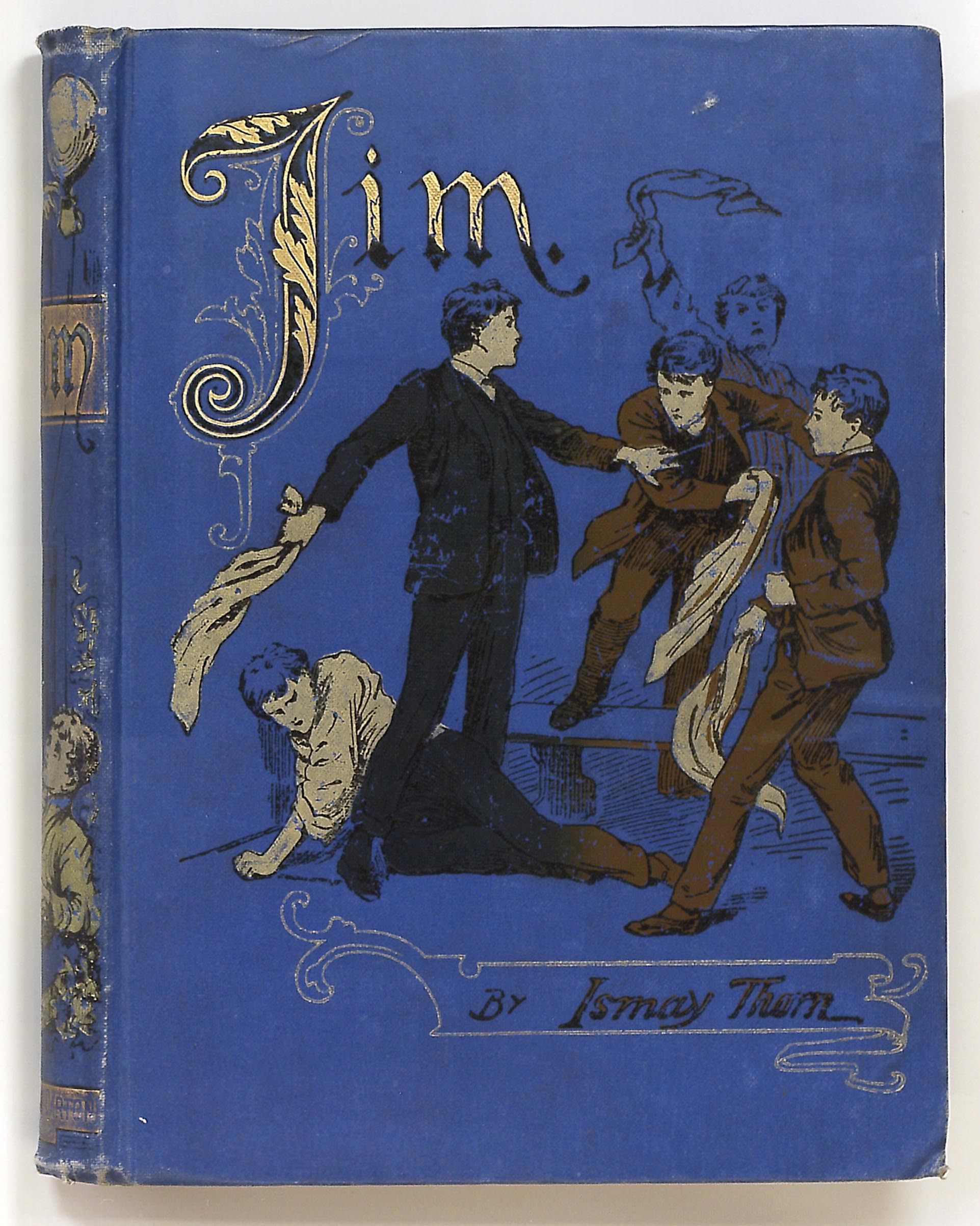Almost everything in this tale is true – only the names and facts have been changed to protect the guilty.
Jim, the deputy Head was a burly, overweight man in his early sixties. He wore thick-lensed glasses and seemed to spend most of his time patrolling the corridors. He was no time-server but he had seen (not to say done) a lot and not much got to him. He’d seen war service, like many of the older teachers in the early 70’s, and come back shaken if not stirred.

London secondary schools in those days were staffed by an extraordinary collection of teachers. History was taught by a German professor of philosophy who had sought asylum as the Nazis came to power. He was a remarkable and civilised man who found himself teaching in his later years, not in the University of Heidelburg but in an inner London school full of alienated and antagonistic boys. The headteacher was an ex-actor (whether failed or not I don’t know). His thespian skills came in handy though. He kept his distance from the pupils but was always available to talk to members of staff in need of ten minutes R&R before going back to the front. Of the younger bunch I remember a charming and cultured American, let’s call him Ogden, who played in the Scratch Orchestra, Brian, who actually wanted to be a teacher, and Lilly. Others came and went before I knew their names, turning up in the morning and sometimes legging it at lun chtime. I stayed six months or so and was thus one of the longest serving teachers. I had no great desire to teach; I had just been walking past the school when a long shepherd’s crook shot out and dragged me in – well almost. A friend of mine had discovered that ‘supply teachers’ earned what seemed a princely sum and just needed a degree. Lacking any better idea I followed him down to County Hall (now the Park Plaza Hotel, County Hall London – ah well that’s progress), proved I was a graduate and was in. New Cross (now yuppy New Cross – how much progress can we take?) was my school’s location. All I had to do was walk to Highgate tube, ride to London Bridge, get a train to Brockley and then walk half a mile up the hill to the school. Fairly newly graduated and therefore a highly accomplished sleeper, I found this journey pretty traumatic let alone having to work at the end of it. The only thing I think I accomplished during my time at the school was to quit smoking because I realised it was that or die running for a train.
chtime. I stayed six months or so and was thus one of the longest serving teachers. I had no great desire to teach; I had just been walking past the school when a long shepherd’s crook shot out and dragged me in – well almost. A friend of mine had discovered that ‘supply teachers’ earned what seemed a princely sum and just needed a degree. Lacking any better idea I followed him down to County Hall (now the Park Plaza Hotel, County Hall London – ah well that’s progress), proved I was a graduate and was in. New Cross (now yuppy New Cross – how much progress can we take?) was my school’s location. All I had to do was walk to Highgate tube, ride to London Bridge, get a train to Brockley and then walk half a mile up the hill to the school. Fairly newly graduated and therefore a highly accomplished sleeper, I found this journey pretty traumatic let alone having to work at the end of it. The only thing I think I accomplished during my time at the school was to quit smoking because I realised it was that or die running for a train.
The school, a Victorian red-brick (well as red as London pollution allowed) was named after an illustrious and long-dead Londoner and had a large tarmac playground surrounded by railings but no blade of grass within realistic reach. It was a challenging place to start or end a teaching career. It was multicultural before the concept existed and contained an ethnically diverse mix of boys and young men, many of whom were already traumatised or traumatising. There were significant numbers of poor whites, extremely large Turkish lads, first and second generation Afro-Caribbean boys, a good many Chinese and a smattering from other countries. These ethnic groups seldom mixed though they would unite against the youth of others schools or neighbourhoods. The Afro-Caribbean lads were particularly fond of insulting me in dialect if I asked why they had not brought a pen to school. Thinking about it now I can understand their irritation. The answer was pretty obvious; no pen – no writing. Thinking a bit more about it now I think many were embarrassed at their lack of literacy. Having been educated at Beacon Hill Secondary Modern School I didn’t take it personally. They were named after imperial heroes; Nelson, Wellington, Winston, Montgomery, or more rarely Wilberforce, a hero of a different kind. Occasionally a Napoleon would come along, suggesting imperial loyalties could become strained.
The staff room was a kind of sanctuary from ‘the front’, a place to wait and tremble before going ‘over the top’. It smelt of stress and cigarettes and visibility was limited by the smoke haze. My initial surprise at the way cigarette ends were casually dropped on the carpet and stubbed out with a foot rather than bothering to use one of the many ashtrays didn’t last long; soon I was stubbing with the worst of them.
Walls separating classrooms were simple wooden partitions so noise carried. This was something I came to appreciate when two Turkish ‘boys’, each weighing around 14 stones decided to fall out and rolled about the floor grappling and generally trying to kill each other. Desks and chairs were scattered as if they were stage props. Eventually they collided with a dividing wall which shuddered and almost gave way, bringing one of the few experienced and competent teachers into my room. I doubt he could tell who was the teacher but he magically restored order without totally humiliating me.
The bonus about teaching there was that supply staff, intended to be temporary stand-ins for permanent staff, could stay until they retired or died – if they wished. The staff turnover was such that there were always vacancies. Plus, people called me ‘colleague’ rather than ‘Oi You!’ – well not the boys obviously. And, when I closed the classroom door, I was free to do whatever I chose – as were the boys obviously.
I was taken on to teach English so was a tad confused when I was given an RE timetable for my first week. It turned out that the RE specialist had suffered a heart attack and would not be coming back.
“It’s not really my subject.”
“Don’t you worry about that son,” said Jim, smiling.
“But what shall I do with them?”
He thought for a second, perhaps remembering the war in the desert, and then said, “Tell ‘em a story,” patted me on the back and was off.
So I did, beginning with the immortal lines, “Now then, hands up if you know what a desert is.”
It didn’t end well.
It didn’t take me long to realise that my English timetable was actually being taught by Lilly, who was an art teacher. She was one of the nicest young women imaginable and I can’t understand how she survived in the school. She didn’t stay though. She came in one day with a black eye, the product of a troubled relationship and an abusive partner, and left soon after. I probably should have stuck to RE, where I could do less damage and access divine forgiveness, but instead I went off sick and then went into school when “not quite well enough to go back in the classroom” to discuss my timetable. Such was their desperation to at least have someone in front of most classes that I got the English timetable and Lilly reverted to art. God knows who taught RE.
After about three months or so the Head of English, who caned boys and taught the GCE group, announced that it was time for the annual test. He suggested we all draft a few language questions and round off with questions on whichever reading book the group had studied.
“Reading book?” I offered.
He looked at me and said, “Haven’t you been reading a book with them?”
I thought this was a bit rich given that my induction consisted of being told how to find paper for my pupils in the unlikely event of their deciding to put pen to paper.
Fortunately, my leader had a solution: “Forget the book questions then.”
I discovered there was a whole cellar/air-raid shelter full of books and wandered down to select some appropriate texts. It didn’t take me long to work out why they were still in the cellar. Most were heroic stories of young white chaps who got up to horse-play at their public schools but were sporting and on the whole ‘good types’, proto-Bullingdon Club I guess. The plots often involved ‘the hols’ and discovering a German spy signalling to the off-shore submarine in the middle of the night just outside of somewhere like Charmouth. 
The books were called things like “Jim Saves the Day” and “Jack of the Third Remove”. The idea of trying to read one of them to the lost children of a lost Empire was not appealing.
My happiest memory of the school was of a summer’s day when the staff took on the boys in the annual cricket match. It was played in a south London park on a glorious, sunny afternoon. The mood was relaxed and everyone was in a good humour. I was not in the team and had no involvement or responsibility. The staff team consisted largely of canny veterans but with a smattering of younger teachers. They batted first and reached a respectable total of around seventy – it would have been more but for some terrifyingly quick fast bowling from one wonderfully athletic Afro-Caribbean lad. Some of the staff, having faced one ball spent a lot of time making sure they were not facing him again and then, if they could find an opportunity, getting out without getting maimed.
The boys’ batting was, on the whole, mediocre; they were nervous and uncoached and we were cruising to an easy victory. Then the fast bowler came in to bat. Even at fourteen he was brilliant. He began caning the bowling, hitting fours and the occasional six and not deigning to run for a single unless it was to make sure he kept the batting. Eventually he had punished every bowler we had. We needed one more wicket to win but there was no way to get him out. Then Jim, the portly deputy head, showed himself. He hadn’t bowled and had barely batted but he decided to bowl an over.
I’ve heard it said that the reason the Swordfish biplane torpedo-bombers managed to disable the Bismark was because the ship’s radar-controlled guns were calibrated for a minimum attack speed which was faster than the attack speed of the Swordfish. No-one who mattered could believe we would attack the most powerful warship afloat with such suicidally slow aircraft. As a result the Bismark’s shells exploded well ahead of the ponderous aircraft. “Vorsprung Durch Technik”?
On that hot summer’s day Jim was our Swordfish squadron. He didn’t run, he ambled up to the crease. When he released the ball it made only marginal progress against no breeze and landed just outside the batting crease. On landing it changed direction. It didn’t really need to because the batsman had already played at the ball well before it reached him, clearly not believing anyone could bowl so slowly. It took Jim two more balls to take the wicket. The batsman played and missed all three and the third ball removed his stumps. The honour of the staff was safe.
